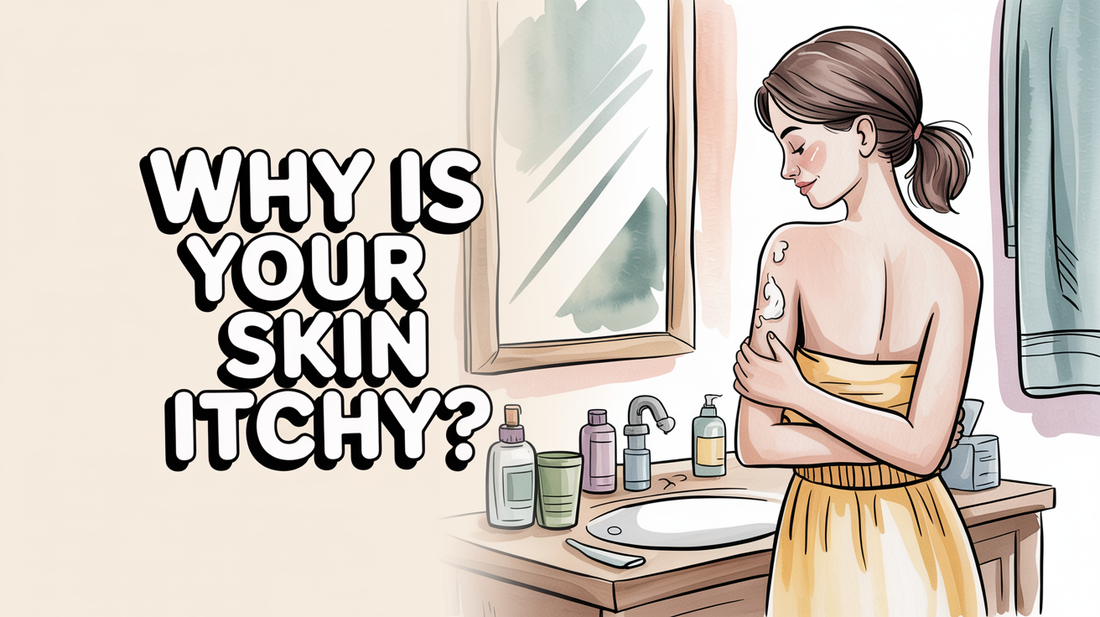3 Surprising Reasons Your Skin Is So Itchy
reasons for itchy skin, itchy skin causes, why skin itches — Itchy skin can be a frustrating experience, often prompting us to search for answers. This article will discuss three surprising reasons for itchy skin, highlighting common environmental triggers, skin health issues, and everyday habits that may contribute to the discomfort. By understanding these factors, you may be able to find relief tonight.
Reason #1: Environmental Triggers
Environmental factors surrounding us can often be the source of skin irritation and itching, affecting our overall skin health. For instance, low humidity levels, particularly during winter or in air-conditioned environments, can strip your skin of moisture, leading to uncomfortable dryness and itchiness. Allergens such as pollen, dust mites, pet dander, and mold spores can also cause allergic reactions that manifest as itchy, inflamed skin.
Chemical irritants found in cleaning products, laundry detergents, and personal care items are also common culprits, potentially leading to persistent itching. Moreover, extreme weather conditions including cold air, strong winds, and excessive sun exposure can damage the skin barrier, triggering inflammatory responses. Indoor pollutants such as cigarette smoke and poor ventilation can worsen sensitive skin conditions as well.
- Low humidity can lead to dry, itchy skin.
- Allergens like dust mites and pollen may trigger skin irritation.
- Chemical irritants in everyday products can cause contact dermatitis.
- Extreme weather can damage the skin barrier.
- Indoor air pollutants may aggravate sensitive skin.
Reason #2: Skin Health Issues ✨
Sometimes, persistent or recurrent itchiness can be linked to underlying skin health conditions. While these issues often require proper diagnosis, they can offer insights into why your skin itches. For instance, eczema, a chronic inflammatory condition, can result in red, itchy patches, often triggered by allergens or stress. Similarly, psoriasis can create thick, scaly patches that are extremely itchy due to rapid skin cell turnover.
Fungal infections, such as athlete's foot or ringworm, may also cause intense itching along with redness and scaling. Dry skin, or xerosis, occurs when the skin loses too much moisture, leading to irritation. Age-related skin changes can make older adults more vulnerable to itching, as decreased oil production and thinner skin can compromise the skin barrier.
- Eczema may cause red, itchy patches on the skin.
- Psoriasis leads to thick, scaly, and itchy skin areas.
- Fungal infections can intensify itching and discomfort.
- Dry skin can compromise the skin barrier, leading to irritation.
- Age-related changes may increase susceptibility to itching.
Why We Recommend a Gentle Helper 🌿
Jane Vine Calendula Cream is formulated for quick absorption and a soothing, lightweight feel. It may support a calm routine and help reduce skin irritation.
- Fast-absorbing and unfragranced.
- Contains skin-soothing ingredients.
- Inspired by Nature.
Reason #3: Everyday Habits You Can Fix 🔍
Your daily habits and lifestyle choices can unknowingly contribute to skin itching, making them often the easiest factors to modify for immediate relief. For example, over-washing or using hot water can strip the skin of its natural oils, disrupting its protective barrier and leading to dryness and itching. On the other hand, using harsh soaps or body washes with sulfates may irritate sensitive skin.
Inadequate moisturizing, particularly after bathing, can allow the skin to lose moisture rapidly, making it more prone to itching. Wearing tight-fitting clothes made from synthetic fabrics can trap sweat and create friction, while poor hydration can affect skin moisture from the inside out. Even stress and lack of sleep can exacerbate existing skin conditions, increasing sensations of itching.
- Over-washing can lead to dry, itchy skin.
- Harsh soaps may irritate sensitive skin.
- Inadequate moisturizing can lead to moisture loss.
- Tight clothing can trap sweat and irritate the skin.
- Poor hydration can worsen skin dryness.

